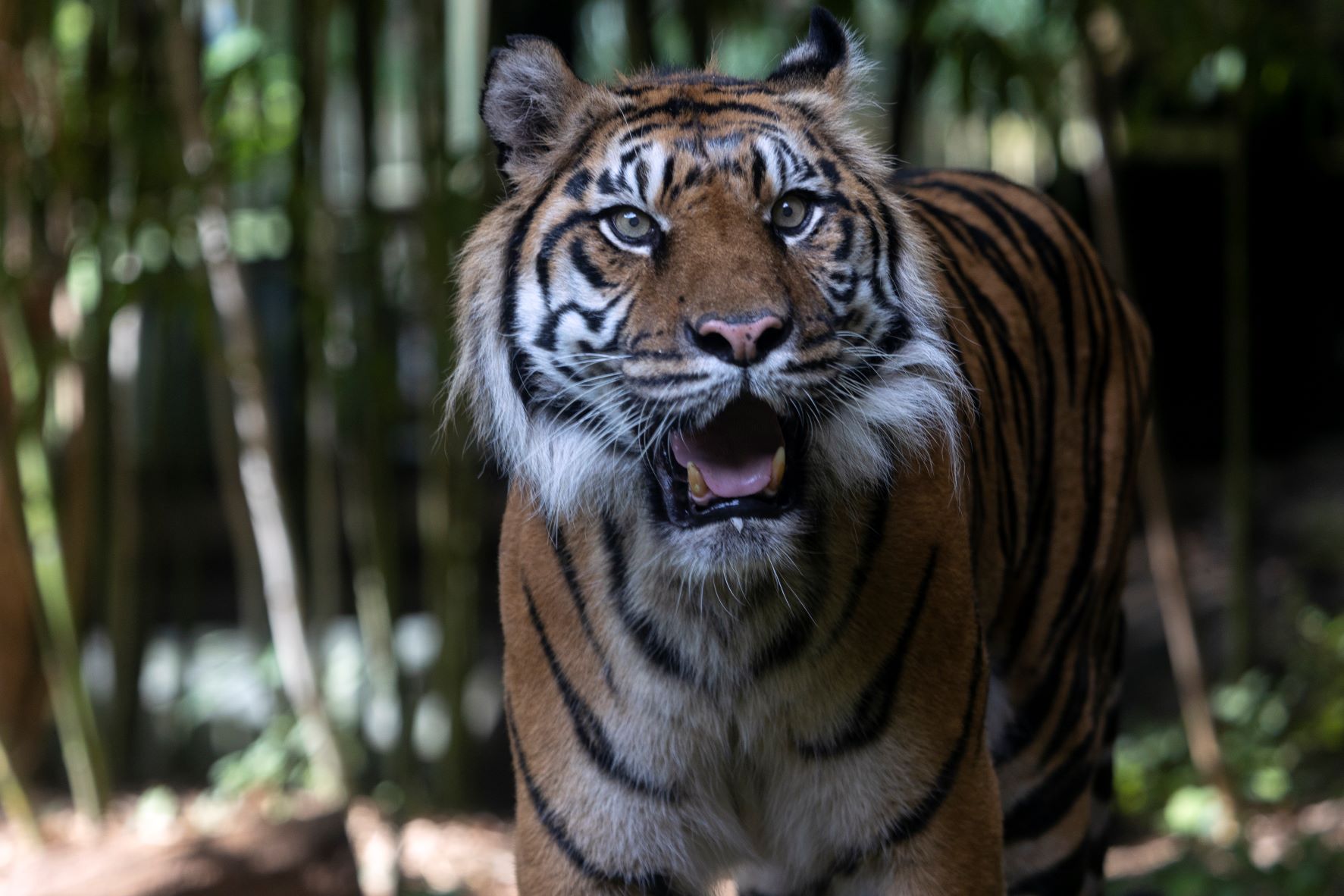Summary of ZOO ATLANTA IS SADDENED BY THE PASSING OF CHELSEA THE SUMATRAN TIGER:
Zoo Atlanta announced the passing of Chelsea, a 20-year-old female Sumatran tiger, on April 10, 2024, due to chronic health issues, including kidney disease. Chelsea was well beyond the typical lifespan for her species, which usually lives 10 to 12 years in the wild. During her time at the zoo, she birthed cubs Sohni and Sanjiv in 2011, contributing to the conservation efforts for the critically endangered Sumatran tiger species. The zoo is actively involved in sustainable practices and conservation initiatives, such as the Roundtable for Sustainable Palm Oil™ and the Wildlife Trafficking Alliance, to combat threats endangering tigers and other species. An autopsy will be performed through a partnership with the University of Georgia to learn more about Chelsea’s passing.
– The passing of Chelsea, a 20-year-old Sumatran tiger at Zoo Atlanta, marks a significant event in the conservation and zoo communities.
– Sumatran tigers are critically endangered, with fewer than 400 believed to be in the wild, facing threats from habitat loss, deforestation for palm oil, and poaching.
– Zoo Atlanta’s commitment to conservation extends beyond its gates, including participation in the Roundtable for Sustainable Palm Oil™ (RSPO) and the Wildlife Trafficking Alliance.
The recent passing of Chelsea, a beloved 20-year-old Sumatran tiger at Zoo Atlanta, has deeply affected the local community and global conservationists. This event symbolizes a loss for the zoo. It brings the plight of Sumatran tigers back into the spotlight, serving as a poignant reminder of the ongoing battle against extinction that many species face. Zoo Atlanta, known for its active role in global wildlife conservation efforts, has taken this moment to reiterate the importance of sustainable practices and the fight against illegal wildlife trafficking.
Chelsea’s life represented more than just one tiger’s journey through captivity. Her existence was a testament to the broader conservation successes and challenges facing Sumatran tigers. A critically endangered species, Sumatran tigers are teetering on the brink, with illegal poaching and habitat destruction decimating their populations. Chelsea’s advanced age of nearly 21 years was a significant achievement, considering their wild counterparts are expected to live only 10 to 12 years. However, it’s essential to recognize that her longevity also underscores the importance of optimal veterinary care that zoos provide.
Zoo Atlanta has actively participated in the fight to save endangered species like the Sumatran tiger. Beyond the zoo’s gates, the organization is involved in broader conservation efforts, notably participating in the Roundtable for Sustainable Palm Oil™ (RSPO). This initiative aims to transform markets to make sustainable palm oil the norm. This is a vital action, as palm oil production has been identified as a leading cause of deforestation, which dramatically impacts the habitats of tigers, orangutans, and many other species.
Furthermore, Zoo Atlanta is crucial in combating the illegal wildlife trade. As a partner in the Wildlife Trafficking Alliance, the zoo leverages its platform to educate the public on the devastating effects of this global issue. Through interactive displays and educational programs, such as the Corridor to Change pathway, Zoo Atlanta aims to reduce consumer demand for illegally traded wildlife products and raise awareness about social media’s role in exacerbating wildlife trafficking.
The loss of Chelsea also emphasizes the importance of species survival plans and breeding programs within zoos. Her offspring, Sohni and Sanjiv, born in 2011, represent hope for future generations. These programs, conducted by zoos accredited by the Association of Zoos and Aquariums (AZA), are vital for the genetic diversity and conservation of species on the brink of extinction. The transfer of Sohni and Sanjiv to other AZA-accredited institutions, where they have since had offspring of their own, demonstrates a collaborative effort to ensure the survival of Sumatran tigers.
Finally, the autopsy to be performed in collaboration with the University of Georgia Zoo and Exotic Animal Pathology Service will provide valuable data that can contribute to the ongoing care and management of captive tiger populations and further our understanding of the health challenges faced by senior animals in zoological settings.
Each aspect of Chelsea’s life and passing—from her contribution to the genetic diversity of her species and the zoo’s role in global conservation initiatives to the invaluable educational opportunities her story presents—illustrates the multifaceted approach required to combat the extinction crisis facing tigers and other endangered species. Zoo Atlanta’s efforts continue to highlight the critical role of zoological institutions in wildlife conservation, education, and promoting sustainable practices among the public. In honoring Chelsea’s legacy, Zoo Atlanta reaffirms its commitment to these endeavors, striving to make a lasting impact on preserving our planet’s remarkable biodiversity.


